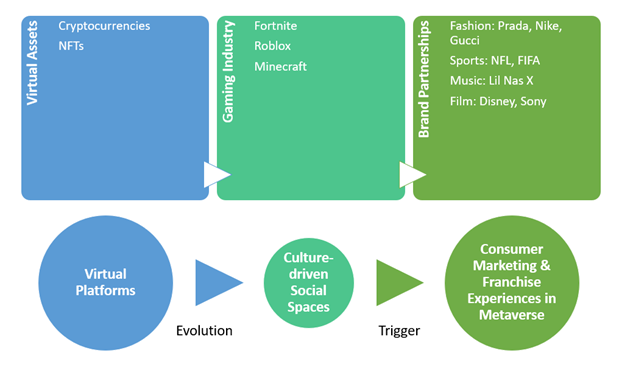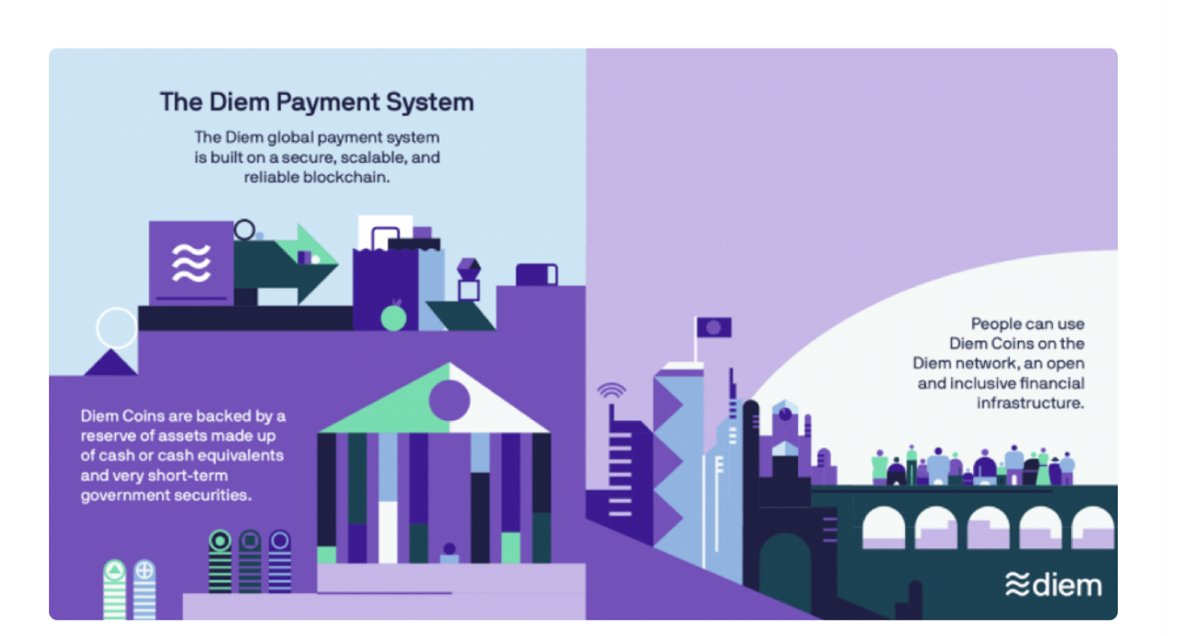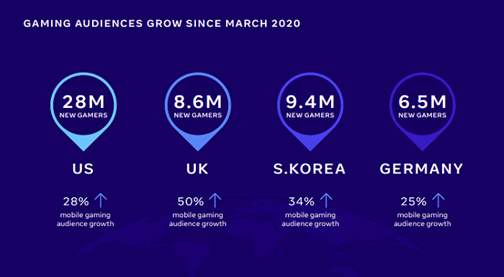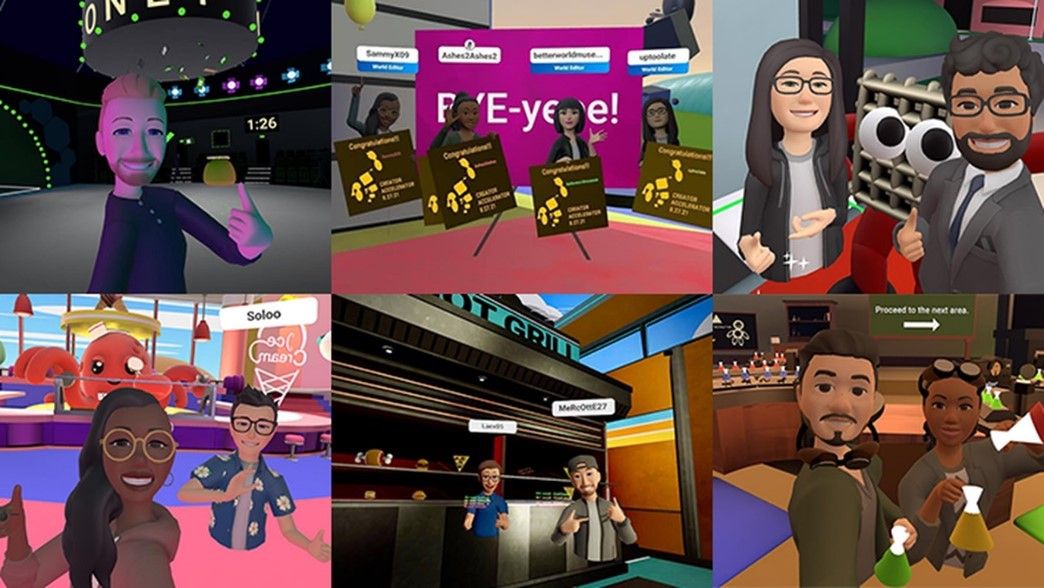What Is the Impact of Metaverse on Marketing?

The metaverse has been a hot topic of conversation recently. The opportunity of the metaverse is significant to marketers who can effectively tap into this audience and be bold in this futuristic virtual playground. This blog will explore critical aspects you need to understand metaverse as a digital marketer.
Some called it the next evolution of social technology.
Some say it is a repackaging of the Internet.
Others called the merge of the digital and real worlds.
Brace yourself. The next chapter of the Internet - "metaverse" is coming.
While inklings of the metaverse have existed in games such as Fortnite, Minecraft, and Roblox, big tech companies including Facebook, NVIDIA, Microsoft are bringing the metaverse into real life:
- On October 28, 2021, Mark Zuckerberg announced a significant change at Facebook Connect – the company got its new name Meta and considered itself a “metaverse-first social technology company.” With the rebranding, Zuckerberg showed off an "all-metaverse-all-the-time" vision.
- On November 2, 2021, Microsoft announced its plans to bring mixed-reality, including holograms and virtual avatars, to Microsoft Teams in 2022. The capability is powered by the Mesh, a virtual collaboration tool launched this year.
- On November 10, 2021, Nvidia CEO Jensen Huang envisioned his metaverse platform "Omniverse" — supporting metaverse-style collaboration and enabling others to further their metaverse development.
So what does it mean to marketers? Should I get ready to create a branded NFT or hire some virtual material designer or other virtual design roles?
With limited travel or social opportunities, the pandemic has made marketers realize that VR marketing is necessary. When in-person marketing is impossible, we have to turn them into virtual seminars, virtual luncheons, virtual stores, 3D booths... Humans, as social animals, always demand a significant range of shared experiences.
Therefore, I was intrigued by the recent torrent of "metaverse" announcements and tried to capture opportunities for brands in this fledgling arena.
I must confess that I did not feel very ‘meta’ drinking coffee watching the 81-minute video disquisition by Mark Zuckerberg. Is “Zuck” not even trying to hide his cyborg tendencies anymore? The super-high resolution ray-traced avatar of Nvidia CEO Jensen Huang is more entertaining. Read on to understand the basics of metaverse if you want to skip Mr. Zuckerberg’s flaccid future porn.
What is Metaverse?

Many high-tech juggernauts have been showcasing their metaverse plans and prowess, but what is "metaverse"?
The term is composed of "meta" (originally from the Greek μετά, "after" or "beyond," used as a prefix meaning transcendence) and the root "verse" (derived from the word "universe"). Built upon technologies including artificial intelligence, cloud, AR/VR/MR, and 5G/6G, the metaverse blends the natural world and digital worlds, enabling transcendent virtual experiences in parallel to the physical world. It is the next disruptive technology, probably bringing as significant a shift in human communications as the telephone or Internet.
Here is a long list of sci-fi movies from Ready Player One to the Matrix to help you further understand this sci-fi concept.

When Will Metaverse Become Real?
First, allow me to recite the Rule of thumb for dealing with today's media - get ahead of the expectations!

Companies love to blend product announcements with pie-in-the-sky pronouncements to have better coverage, merge different products under one conceptual banner, or create an investment frenzy on Wall Street. There have been extensive talks by a few tech giants about how to build the metaverse, or who will build it first.
However, the transformation process will be driven by a Cambrian explosion of different “things” coming together.
Metaverse is not simply a stand-in for the immersive worlds of AR/VR. Instead, to make it accessible to billions of people around the world, we need:
- Technological readiness: AR and VR are still immature, especially game engines; collaboration is taking off now, thanks to the pandemic. And our network technology does not yet have what it takes to meet the bandwidth demand or support fast communications. Metaverse will also require better chips to process exponential data growth and safer and more reliable hardware.
- Virtual economy: 75% of the $180B global gaming industry is revenue from virtual assets. As gaming companies are marching into the metaverse, the industry is expected to grow to $390B, with nearly all of its revenue from virtual items like cryptocurrencies or NFTs by 2025. However, current DeFi (decentralized finance) projects still have significant risks - many things could go wrong... A new form of governance, regulations, and protocols could take years to implement.
- Philosophy & Social Science: Are we ready for a new way of interacting, working, or playing with each other in virtual worlds? The sci-fi author of "Three-Body," Liu Cixin warned that the metaverse is an "involution" (excessive competition) of our civilization and will eventually lead humanity towards a dead end.

The metaverse has the potential to be disruptive. Is Holy Grail or Pandora's Box? The answer will remain unknown for years, possibly decades.
Either way, its applications will exceed our wildest imaginations.
Marketing Scenario in Metaverse?
The virtual world is growing at a fantastic speed and building its economy, complete with jobs, social, shopping areas, and media to consume. More than ever, marketing is being driven by the wants and needs of the customer. As new technology becomes available, customers want brands to deliver experiences that use it.
From a virtual Gucci Dionysus Small GG to Nike's virtual store, some brands may already feel the impact on their marketing strategies. But are you ready for what’s coming next?

I am going to get you up to speed on three key aspects you need to understand about metaverse as a marketer.

Virtual Assets
It’s a big year for the crypto world. Several projects, such as nonfungible tokens (NFTs) and centralized, decentralized finance exchanges (CeDeFis), are taking the central stage. Also at the forefront is Meta's Diem, a permission-less payment system based on blockchain technology.

As one crucial component of the metaverse, these virtual assets will create more efficient, global e-commerce by bringing down the cost of cross-border transactions, which is already high at 6.5%. Companies like Shopify have joined the Meta's Diem Association to allow site owners to integrate the coin easily. One of the most important things is to analyze how your potential customers pay for your products or services. Once you know which is the primary payment method for your customers, you can incorporate the right type of virtual assets at the correct timing accordingly.
Gaming Industry
The gaming industry saw massive growth globally during the pandemic. For marketers, this is a great new channel to reach a younger audience and boost brand performance.
According to the Games Marketing Insights update for 2021, the gaming culture, more generally, will continue to expand in the metaverse. To be clear, we are not just talking about the game itself. It is a virtual social experience, including entertainment, virtual economy, and community.

Take a look at the community that’s built up around Fortnite. Friends across the world can reunite at a single time and place by playing the game. Over time, the Fortnite community has expanded beyond the gameplay alone and nurtured a global community of fans who share inside jokes, tokens, memes, and experiences on multiple platforms.
Games will become a fundamentally social space.
Branding Partnership
Brands will enjoy a broader connection with customers across multiple "realities" in the metaverse.

75% of top world brands have already integrated VR into their content strategies. If you haven't jumped into VR marketing, here are two good news for you:
- There's general acceptance that ads are a part of the VR experience. 62% of consumers say they would feel more engaged with a brand in an immersive experience.
- 71% of consumers perceive a brand that uses virtual reality as forward-thinking.
If you are marketing for a fashion brand, here is a bonus one: one of the top reasons for spending moony on games among US gamers is to personalize characters with custom items.

In 2019, Nike partnered with Fortnite to let characters wear Nike-branded sneakers. The company has recently filed several new trademarks for “Nike,” its slogan “Just Do It,” and its swoosh logo indicating its intent to make and sell virtual Nike-branded sneakers and apparel.
Invariably, advertising generates lions of revenue for tech giants like Google, Facebook. Given the importance of ads, metaverse must be a door to open more new opportunities for Mr. Zuckerberg as well as marketers to make money.
***
Metaverse is opening doors to a more interactive, creative, and engaging franchise experience. It’s important to keep your finger on the trend's pulse for the next five or ten years. As metaverse-related technologies mature, brands and advertisers will be able to reach fully immersed customers in multiple worlds. Thus, early adopters will have the upper hand and stand out from other competitors.

